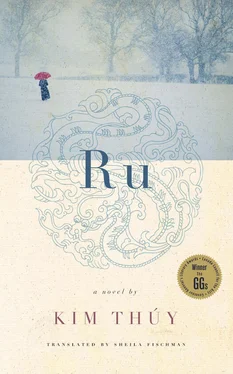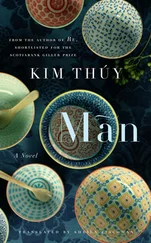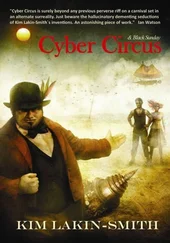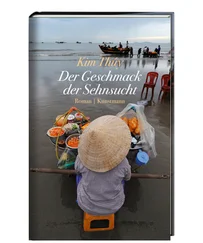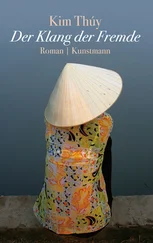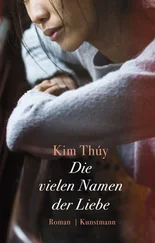I‘ve often asked strangers who came to Asia to buy love on a one-time basis why, on the morning after a wild night, they insisted on sharing their meal with their Vietnamese or Thai mistress. The women would have preferred to receive the cost of those meals in cash, so they could buy a pair of shoes for their mother or a new mattress for their father, or to send their little brother for English lessons. Why desire their presence outside of bed when their vocabulary is limited to conversations that go on behind closed doors? They told me I didn’t understand a thing. They needed those young girls for a totally different reason — to restore their youth. When they looked at those young girls, they saw their own youth, filled with dreams and possibilities. The girls gave them something: the illusion that they hadn’t made a mess of their lives, or, at the very least, the strength and the urge to start over. Without them they felt disillusioned, sad. Sad at having never loved enough and having never been loved enough. Disillusioned because money hadn’t brought them happiness, except in countries where for five dollars they could obtain an hour of happiness, or at least some affection, company, attention. For five dollars they got a clumsily made-up girl who came for a coffee or a beer with them and roared with laughter because the man had just said the Vietnamese word urinate instead of pepper , two words differentiated only by an accent, a tone that is nearly imperceptible to the untrained ear. A single accent for a single moment of happiness.
One night, as I followed into a restaurant a man with a slashed earlobe like that of one of the Communist soldiers who’d lived in my family home in Saigon, I saw through the slit between two panels of a private room six girls lined up against the wall, teetering in their high heels, faces heavily made up, bodies frail, skin shivering, totally naked in the flickering light from the fluorescent tubes. Together, six men took aim at the girls, each with a tightly rolled American hundred-dollar bill, folded in half around a taut rubber band. The bills crossed the smoky room at the crazy speed of projectiles, finally landing on the girls’ translucent skin.
During my first months in Vietnam, I was very flattered when people thought I was my boss’s escort, in spite of my designer suit and my high heels, because it meant that I was still young, slim, fragile. But after witnessing the scene where the girls had to bend down to pick up the hundred-dollar bills wadded at their feet, I stopped feeling flattered out of respect for them, because behind their dreamy bodies and their youth, they carried all the invisible weight of Vietnam’s history, like the women with hunched backs.
Like some of the girls whose skin was too delicate, who couldn’t bear the weight, I left before the third volley. I left the restaurant deafened not by the sound of clinking glasses but by the imperceptible sound of the shock of bills against their skin. I left the restaurant, my head filled with the resonance of the stoic silence of the girls who’d stayed behind, who had the strength to strip the money of its power, becoming untouchable, invincible.
When I meet young girls in Montreal or elsewhere who injure their bodies intentionally, deliberately, who want permanent scars to be drawn on their skin, I can’t help secretly wishing they could meet other young girls whose permanent scars are so deep they’re invisible to the naked eye. I would like to seat them face to face and hear them make comparisons between a wanted scar and an inflicted scar, one that’s paid for, the other that pays off, one visible, the other impenetrable, one inordinately sensitive, the other unfathomable, one drawn, the other misshapen.
Aunt Seven also has a scar, on her lower belly, the trace of one of her escapades in the maze of alleys where she inched her way between the vendors of ice and of slippers, between squabbling neighbours, angry women and men with erections. Which of these men was the father of her child? No one dared to question Aunt Seven because they’d had to lie to her during her pregnancy to protect her from her own belly by concealing it under the habit of the nuns at the Couvent des Oiseaux. The nuns called her Josette and showed her how to write her name in large dotted characters. Josette never knew why she was getting so fat or why she woke from a deep sleep to discover that she was thin. She only knew that Aunt Four’s adopted son ran away, like her, as soon as he could. He criss-crossed the same alleys at the speed of light, holding his sandals so that his feet would feel the heat of the pavement, the texture of excrement, the sharpness of a piece of broken bottle. He ran all through his childhood. And all through his childhood we other children, young and old, ten, fifteen, even twenty of us, patrolled the neighbourhood every month. One day we all came home empty-handed, as did the servants and the neighbours. He left our lives along the same trail he’d arrived on, leaving as his only souvenir a scar above his mother’s pubic area.
My son Henri runs away too. He runs to the St. Lawrence River on the other side of a highway, of a boulevard, a street, a park, another street. He runs to the water where the smooth rhythm and the constant movement of the waves hypnotize him, offer him calm and protection. I’ve learned to be a shadow in his shadow so I can follow him without upsetting him, without harassing him. Once, though, it took just one second of distraction and I saw him dash in front of the cars, excited and full of life as never before. I was staggered by the juxtaposition of his happiness, so rare, so unexpected, and my own anguish at the thought of his body thrown up in the air above a fender. Should I close my eyes and slow down to avoid witnessing the impact, to survive? Motherhood, my own, afflicted me with a love that vandalized my heart, puffed it up, deflated it and expelled it from my rib cage when I saw my older son, Pascal, show up out of the blue, and fling his brother onto the freshly cut grass of the boulevard median. Pascal landed on his brother like an angel, with chubby little thighs, candy-pink cheeks and a tiny thumb sticking up in the air.
I cried with joy as I took my two sons by the hand, but I cried as well because of the pain of that other Vietnamese mother who witnessed her son’s execution. An hour before his death, that boy was running across the rice paddy with the wind in his hair, to deliver messages from one man to another, from one hand to another, from one hiding place to another, to prepare for the revolution, to do his part for the resistance, but also, sometimes, to help send a simple love note on its way.
That son was running with his childhood in his legs. He couldn’t see the very real risk of being picked up by soldiers of the enemy camp. He was six years old, maybe seven. He couldn’t read yet. All he knew was how to hold tightly in his hands the scrap of paper he’d been given. Once he was captured, though, standing in the midst of rifles pointed at him, he no longer remembered where he was running to, or the name of the person the note was addressed to, or his precise starting point. Panic muted him. Soldiers silenced him. His frail body collapsed on the ground and the soldiers left, chewing their gum. His mother ran across the rice paddy where traces of her son’s footprints were still fresh. In spite of the sound of the bullet that had torn space open, the landscape stayed the same. The young rice shoots continued to be cradled by the wind, imperturbable in the face of the brutality of those oversized loves, of the pains too muted for tears to flow, for cries to escape from that mother who gathered up in her old mat the body of her son, half buried in the mud.
I held back my cries so as not to distort the hypnotic sound of the sewing machines standing one behind the other in my parents’ garage. Like my brothers and me, my cousins sewed after school for pocket money. With eyes focused on the regular, rapid movement of the needles, we didn’t see one another, so that very often our conversations were actually confessions. My cousins were only ten years old, but they already had a past to recount because they’d been born into an exhausted Saigon and had grown up during Vietnam’s darkest period. They described to me, with mocking laughter, how they had masturbated men in exchange for a bowl of soup at two thousand dongs. Holding nothing back, they described those sex acts naturally and honestly, as people for whom prostitution is merely a question of adults and money, a matter that does not involve children six or seven years old like them, who did it in exchange for a fifteen-cent meal. I listened to them without turning around, still sewing, without commenting, because I wanted to protect the innocence in their words, not tarnish their candour by my interpretation of the act. It was certainly thanks to that innocence that they became engineers after ten years of studies in Montreal and Sherbrooke.
Читать дальше
